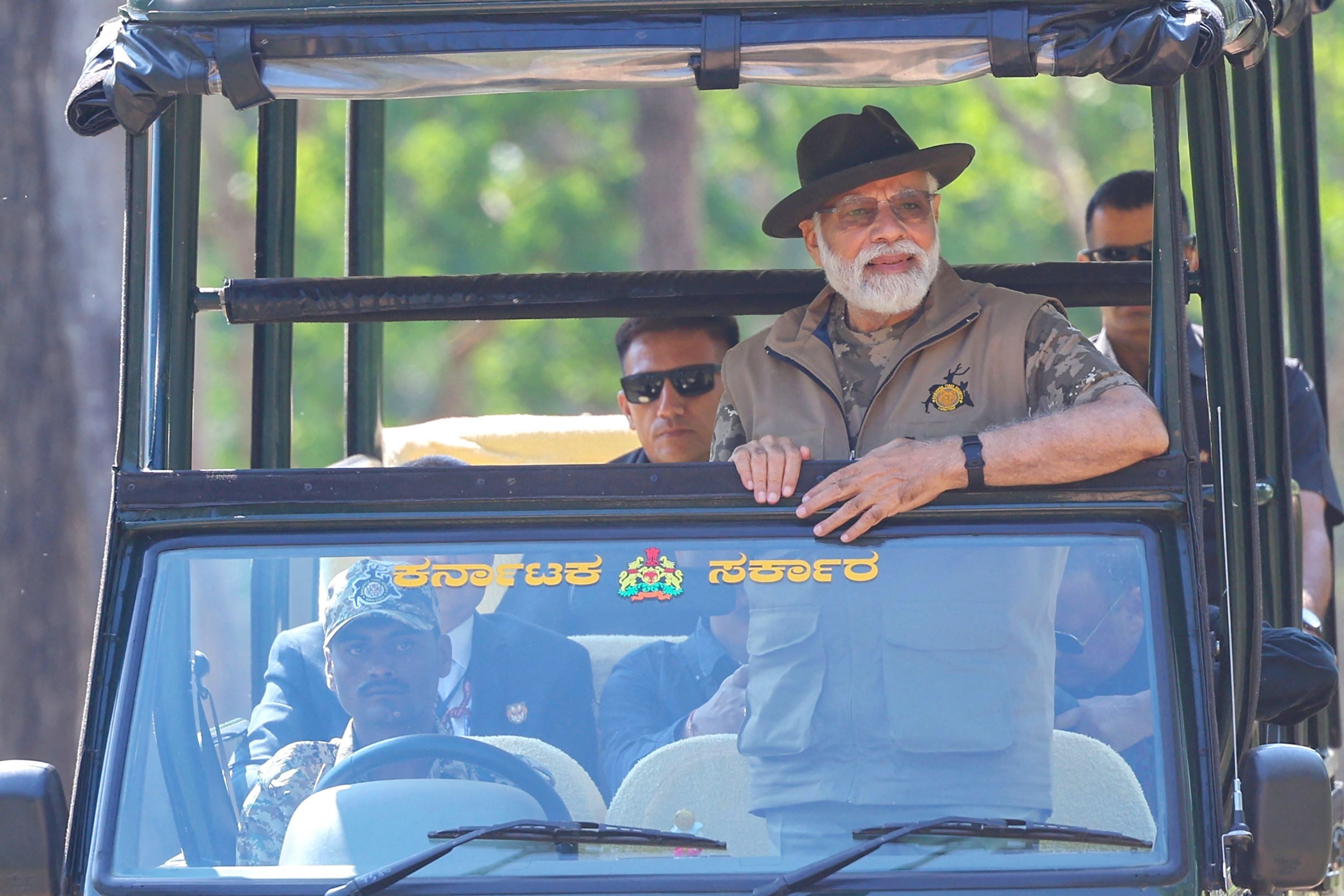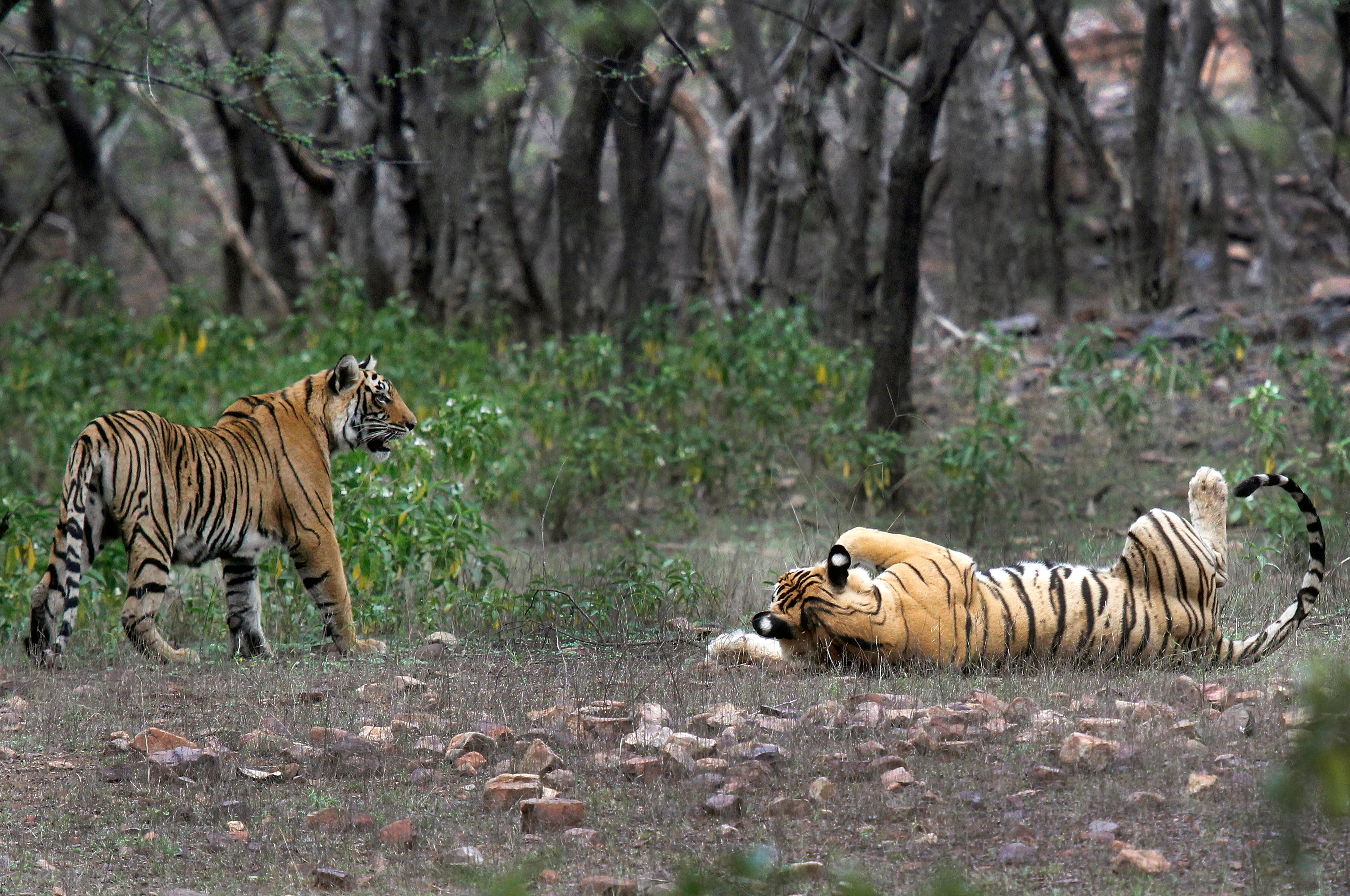India now home to 75% of world’s tiger population as numbers surge
Data reveals that the tigers in the country almost doubled in the last 17 years

The tiger population in India has steadily grown to over 3,000 since the flagship conservation programme began five decades ago, showed the census data revealed by prime minister Narendra Modi on Sunday.
According to the official figures, the numbers grew from 2,967 in 2018 to 3,167 by the end of last year.
The data revealed that the tigers in the country almost doubled in the last 17 years. While in 2006, the tiger count was at 1,411, it jumped to 1,706 in 2010.
“The success of Project Tiger is a matter of pride not only for India but also for the world,” said Mr Modi, during the 50th anniversary of Project Tiger.
“Our country has not only conserved tigers but has also given them an ecosystem to flourish. India is a country which believes in the co-existence of economy and ecology. We are also the largest tiger range country in the world,” said the prime minister as he visited the Bandipur Tiger Reserve in the poll-bound southern Indian state of Karnataka.
With the current count of over 3,000, India is home to more than 75 per cent of the global tiger population and their number is increasing by 6 per cent per annum, according to government figures.

India first launched Project Tiger under then-prime minister Indira Gandhi on 1 April 1973 after a census of the big cats found India’s tigers were fast going extinct through habitat loss, unregulated sport hunting, increased poaching, and retaliatory killing by people.
While it initially covered nine tiger reserves spread over 18,278 sq km, India now has 53 reserves covering more than 75,000 sq km (approximately 2.4 per cent of the country’s geographical area).

It’s believed the tiger population was around 1,800 at the time, but experts widely consider that an overestimate due to imprecise counting methods in India until 2006.
“The huge success and the increase in number of tigers proved how much the country thrives for saving our wildlife,” said Mr Modi as he stressed on the significance of big cats in Hindu religious texts.
“There is a mention of tigers in our mythological scriptures and even on historical carvings. They have been an important species in the ecosystem.”

Tigers have disappeared in Bali and Java and China’s tigers are likely extinct in the wild. The Sunda Island tiger, the other sub-species, is only found in Sumatra. India’s project to safeguard them has been praised as a success by many.
"Project Tiger hardly has a parallel in the world since a scheme of this scale and magnitude has not been so successful elsewhere," said additional director general of forests SP Yadav, who is in charge of Project Tiger.
Join our commenting forum
Join thought-provoking conversations, follow other Independent readers and see their replies
Comments




Bookmark popover
Removed from bookmarks